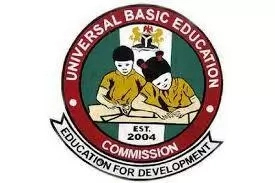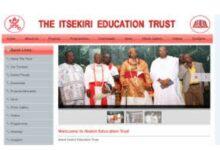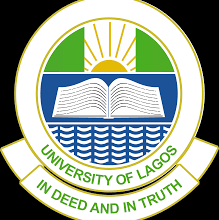The Role of Universal Basic Education in Nigeria
The Role of Universal Basic Education in Nigeria
Here in this post, we are going to discuss the role of universal basic education in Nigeria. we hope you find this article informative and useful.
Education is the bedrock of the society and as such huge emphasis is usually placed by all countries of the world in the educational system.
👉 Relocate to Canada Today!
Live, Study and Work in Canada. No Payment is Required! Hurry Now click here to Apply >> Immigrate to CanadaBasic education refers to the type of education, in quality and concept that that is offered at the first level of education.
Read Also: 10 Functions of Universal Basic Education Commission

Various countries have different durations for their basic education concept. Western Nigeria, for instance, operated an eight-year first education level before it was reduced to 6 years in 1955.
The Eastern geopolitical zone maintained 8-years duration up until 1976, while the Northern Regional Government maintained a 7-year primary education until 1976.
Starting from 1976-1992, the duration of basic education in Nigeria remained 6 years, until it was later expanded to 9 years to accommodate the first three years of secondary education after the introduction of the Universal Basic Education Commission (UBEC).
Read Also: 10 Problems of Universal Basic Education (UBE) in Nigeria and Possible Solutions
Universal Basic Education Entry
The Government of Nigeria in the year 1999 launched the Universal Basic Education as a reform programme targeted at the dwindling educational sector of the country at the time.
The core of the programme was and still remains to provide access to free and quality basic education to Nigerian citizens.
👉 Relocate to Canada Today!
Live, Study and Work in Canada. No Payment is Required! Hurry Now click here to Apply >> Immigrate to CanadaPrior to the introduction of the UBE programme, there were several unsuccessful attempts at revamping educational enrolments in Nigeria.
At the end of the colonial rule in Nigeria, the country continued to operate the educational policy that it inherited. The policy proved to be in total opposite of Nigeria’s ambitions and hence it was abandoned.
In an effort to indigenize the sector, foundations were laid giving birth to a new policy in 1976. The new programme was named the Universal Primary Education (UPE) and despite tedious efforts to get the programme hit the ground running, it flopped woefully.
The very next year being 1977, the National Educational Research and Development Council (NERDC) formulated the National Policy on Education, which was later revised twice in order to ensure that they were in line with the government’s developmental goals.
The country still witnessed poor school enrollment up until the early nineties. The secondary school level was much worse, as most kids dropped out before finishing primary school and the lucky ones who finished hardly furthered.
It also didn’t help that learning infrastructures in the sector were in a state of emergency. Dilapidated class buildings, inadequate and untrained teachers rocked the system.
Done with several trial and error measures, The Universal Basic Education programme was launched in 1999 by the then President of the Federal Republic of Nigeria, Chief Olusegun Obasanjo on 30th September 1999. Its sole purpose was to make provision for “free, universal and compulsory basic education for every Nigerian child aged 6-15 years of age”.
Due to the absence of legal backing for the programme, its implementation was stalled for a few years. As a result, its activities were limited until the UBE Act was signed in April 2004.
Read Also: The Importance of Civic Education in Nigeria
Objectives of the Universal Basic Education
1. Develop in the entire citizenry a strong consciousness for education and a strong commitment to its vigorous promotion.
2. Provide free, universal basic education for every Nigerian child of school-going age.
3. Reduce drastically the incidence of drop-out from the formal school system (through improved relevance, quality and efficiency).
4. Cater to the learning needs of young persons who, for one reason or another, have had to interrupt their schooling through appropriate forms of complementary approaches to the provision and promotion of basic education.
5. Ensure the acquisition of appropriate levels of literacy, numeracy, manipulative, communicative and life skills, as well as the ethical, moral, and civic values needed for laying a solid foundation for lifelong learning.
The Role of Universal Basic Education Programme on the Nigerian Educational Sector
The universal basic education programme has played a pivotal role in the eradication against mass illiteracy in the country.
It was even made better when the UBE commission expanded its scope to include the junior secondary school as part of basic education.
Read Also: The Role of Teacher Education in Nigeria
Let’s take a brief look at some of the giant strides taken the Universal Basic Education Commission that has led to an uprising of educational inclusiveness in the country:
1. Data shows that starting 1999-2003 school enrollment continuously witnessed an increment for both females and males pupils. 7%, 8%, 11% and 44% in 2000, 2001, 2002 and 2003 respectively.
The numbers have continued to be on the rise over the years although, there was more boy-child registration in the primary level.
2. Primary six completion rate also improved from 65% in 1998 to a whopping 83% in 2001. Sadly it took a nosedive in the year 2002 but immediately shot back up to 94% in 2003.
3. The presence of the Universal Basic Education has ushered in laudable developments in the educational system.
The Nigerian school curriculum has undergone several refurbishments in terms of intensity and variety. These diverse contents were carried out to improve universal education suitable for current and future events in the country.
A worthy mention is the introduction of Civic Education into the primary school curriculum in order the educate pupils on the tenets of civic responsibilities. Again important topics of importance were also fused into existing subjects in order to avoid overloading the school curricula.
4. In the area of personnel development, thousands of teachers have continuously been sponsored for training in different states at the colleges of education and universities. Untrained teachers have also been urged to undergo appropriate training courses meant for teachers.
Various seminars, workshops and short courses on innovative teaching techniques and instructional materials improvisation have been organized in the all the geo-political zones in the country since UBE implementation.
5. With the aid of the UBE commission, a move was made and the Nigerian Certificate of Education was fixed as the minimum teaching qualification in Nigeria.
6. As a measure to promote suitable textual learning materials with local illustrations, Nigerian authors were sensitized and financially aided to publish textbooks materials through the establishment of Book Development Centre based at the National Educational Research and Development Council (NERDC).
7. Furthermore, a huge academic milestone was achieved by the UBE commission with the introduction of the continuous assessment scheme in different tiers of the educational system as opposed to the former single terminal examinations.
With the continuous assessment scheme, pupils could be assessed based on knowledge, thinking and reasoning, character development and industry.
Read Also: The Role of Education in Nigeria
The continuous assessment practice enables the teacher to add scores gotten by the pupils’ weekly tests, homework, classwork, class assignments, projects, examination and all other sources used during teaching to arrive at an overall score.
With such overall scores, it would be possible to be able to diagnose problems in the course of instruction. Teachers would, therefore, be in a better position to help their pupils overcome their individual problems.








